Wall St. Bull, "The Billionaire's Vinegar" incite lawsuits
- August 10, 2009 09:30
Last week media mogul Oprah Winfrey was sued for a mind-boggling $1 trillion by a poet who alleges she plagarized his work. She isn't the only high-profile author or publishing entity caught up in hairy legal skirmishes. An artist and a wine expert are also behind separate ongoing lawsuits against book publishers.
Sicilian-born artist Arturo Di Modica, who sculpted the iconic Wall Street bull, is suing the author and publisher of a new book about the collapse of the investment banking firm Lehman Brothers. A photo of "Charging Bull" graces the dust jacket of “A Colossal Failure of Common Sense,” written by Lawrence G. McDonald and published by Random House.
The artist plopped the 7,000-pound beast in front of the New York Stock Exchange in 1989 (without the city's permission), he says to inspire young people and businesses after the 1987 stock market crash. The work was later moved to the Bowling Green where it is a major tourist magnet.
Di Modica filled a lawsuit in the U.S. District Court in Manhattan on July 29 for unspecified damages and for the removal of the image of his bull from the book.
Apparently, Di Modica has also sued Wal-mart and others for unauthorized use of images of the bull.
Another publisher is faced with ongoing legal action in the U.K. for the May 2008 release of a very juicy tome titled "The Billionaire's Vinegar" by Benjamin Wallace. Wine scribe and former Christie's auctioneer, Michael Broadbent, who is named in the book, is suing Crown for libel. The author's account implies that Broadbent invented false bids and colluded with a consigner.
The billionaire in the title is Bill Koch, the Palm Beach and Cape Cod-based collector known for his horde of Monets, Picassos, and an extraordinary 35,000 bottles of wine, including supposed Thomas Jefferson-owned vintages. Koch bought the Jefferson wines at Christie's in 1988.
After a bit of sleuthing, Koch came to believe the so-called Jefferson wines were counterfeits, as perhaps a few others in his massive stash.
Koch says the Jefferson wine originated from German wine dealer Hardy Rodenstock, who seems to be a "Clark Rockefeller" type of character.
He told Wine Spectator, "Rodenstock is just the tip of the iceberg. I plan to put people in jail, I plan to get my money back, and I plan to force the auction houses and retailers to make serious changes."
Rodenstock has declared he found the rare bottles of Chateau Lafite in a Parisian basement. The market was enraptured by a compelling story of an 1787 Lafite engraved Th:J, the year when Jefferson was in Paris serving as ambassador. Malcolm Forbes bought that bottle for $156,450 in 1985 at Christie's, where Broadbent then worked as the wine expert, and Koch later purchased four other bottles with the Jefferson provenance.
Rodenstock maintains the Jefferson wine is the real thing, but the content of the bottles has never been tested. The saga continues with film rights for the book already snatched up.






100x100_n.jpg)
100x100_c.jpg)
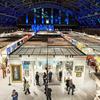

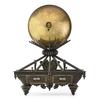
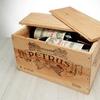


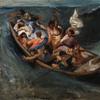

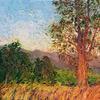

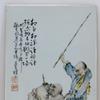

100x100_c.jpg)
